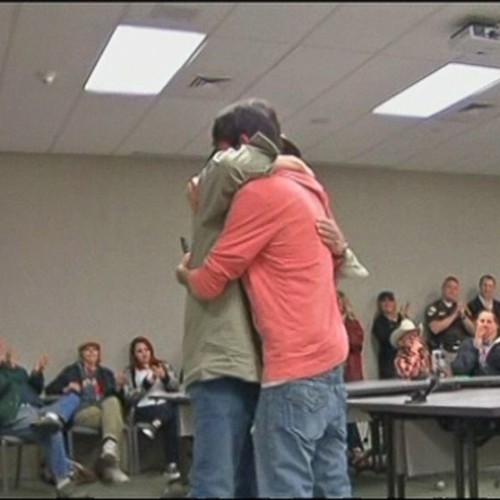Journalist’s Murder Aired on World Humanitarian Day
August 19th was World Humanitarian Day. Though not a recognized holiday, the designation was established by the United Nations to “recognize those who face danger and adversity in order to help others…and to celebrate the spirit that inspires humanitarian work around the globe.” Sadly, the same day also produced reports of the murder of journalist James Foley at the hands of ISIS. Today the White House confirmed that the gruesome video depicting the murder of Foley is authentic. While journalists are not typically considered humanitarian workers, many put themselves in dangerous situations in order to report on important issues. Foley took an assignment on the front lines, in a region known to be dangerous in order to “show the world the true situation for the Syrian people.” His hope, similar to others like him, was that the attention he brought to the situation would bring about change.
The desire to help others is at the heart of humanitarianism, and the cost of that desire should never be one’s life.
Unfortunately, James Foley is not alone. According to Reporters Without Borders, 71 journalists were killed during the course of their work in 2013. An additional 87 journalists were kidnapped and 37 reported missing. In attempting to be a voice for people and issues around the world, journalists are increasingly in peril. In addition to journalist, traditional humanitarian workers are facing danger. According to US Ambassador to the UN, Samantha Power, last year “155 aid workers were killed, 171 injured and 134 were kidnapped….[last month alone] 62 aid workers were killed in Syria.” What these numbers indicate is that in areas with the greatest need comes the greatest risk.
However, you don’t have to go far to serve or make a difference. Recently Ann Coulter wrote an article in which she discussed humanitarian work in the confines of Dr. Kent Brantly. Despite receiving considerable negative feedback, she made some valid points. In her article Coulter questioned why Americans (Christians in particular) travel to third world countries risking life and limb when there is plenty to do here. She wrote:
About 15,000 people are murdered in the U.S. every year. More than 38,000 die of drug overdoses, half of them from prescription drugs. More than 40 percent of babies are born out of wedlock. Despite the runaway success of “midnight basketball,” a healthy chunk of those children go on to murder other children, rape grandmothers, bury little girls alive — and then eat a sandwich. A power-mad president has thrown approximately 10 percent of all Americans off their health insurance — the rest of you to come! All our elite cultural institutions laugh at virginity and celebrate promiscuity.
Traveling overseas is an amazing experience. You learn a new culture, discover what life is like outside western civilization, invest in others, and grow as a person. But what if you are not able to undertake such a journey? Here is where what Ann Coulter said comes into play—there is always a need in your own backyard. While America is wealthy, healthy, and relatively peaceful, needs still exist. Over 20 million Americans live in deep poverty—50%below the poverty line—most of these people live in rural areas.
Humanitarian work does not exist solely in the jungles of Asia, villages on the African continent, or the war zones of Syria, Iraq and Afghanistan. Everyday ordinary people do extraordinary things all over the globe. People like James Foley, and many others, gave their lives to make a difference for others. What can you do here or abroad to evoke positive change?
Images courtesy of UN Association of Australia and Global Post


